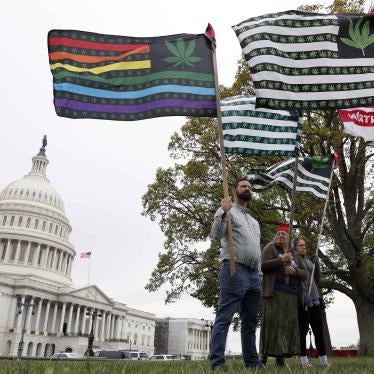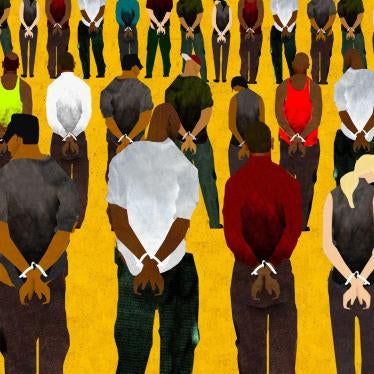March 1, 2022
Speaker Nancy Pelosi
1236 Longworth H.O.B
Washington, DC 20515
House Majority Leader Steny Hoyer
H-107, The Capitol
Washington, DC 20515
Dear Speaker Pelosi and Majority Leader Hoyer:
We, the undersigned criminal justice, civil rights, drug policy, labor and advocacy organizations who make up the Marijuana Justice Coalition, write today to urge you to swiftly bring to the House floor the Marijuana Opportunity Reinvestment and Expungement (MORE) Act of 2021 (H.R. 3617). This legislation would end federal marijuana prohibition, address the collateral consequences of federal marijuana criminalization, and take steps to ensure the legal marketplace is diverse and inclusive.
This historic legislation first passed the House in December of 2020 with a bipartisan vote of 228-164 but was not considered by the Senate prior to the close of the 116th Congress. Given that nearly every minute one person in this country is arrested for a minor marijuana crime,[1] the public deserves to know if members of the 117th Congress stand on the side of justice and against the outdated and cruel policy of prohibition and criminalization of marijuana.
Mass criminalization and over-enforcement of drug law violations have devastated the social and economic fabrics of entire communities, while also tearing apart the lives of millions of individuals and families. And while Black, Latino, and Indigenous people have carried the brunt of marijuana criminalization, they have been shut out of the regulated marijuana marketplace due to these very same criminal records in addition to financial barriers to entry.
The MORE Act seeks to solve these problems through a comprehensive approach. The bill would declassify marijuana as a controlled substance under federal law, expunge marijuana convictions, and reduce marijuana sentences. The Congressional Budget Office estimates that the MORE Act would have reduced time served by 73,000 person-years, over the 2021-2030 period, among existing and future incarcerated individuals.[2] The bill, after solving the industry’s 280E tax issue, would also place a minor initial five percent federal excise tax on marijuana sales at the manufacturer level in order to fund services in communities adversely impacted by drug prohibition and to build up Small Business Administration programming to support a more diverse and inclusive marketplace with local ownership.
The previous House vote on the MORE Act came on the heels of an election where five states—Montana, Arizona, South Dakota, Mississippi, and New Jersey—had marijuana reform on the ballot and each voted to loosen their marijuana laws. Since then, even more states have chosen to reform their marijuana laws. More recently, Connecticut, New York, New Mexico, and Virginia passed marijuana legalization bills rooted in social justice bringing the total number of states that have legalized adult-use of marijuana to 18, in addition to the District of Columbia, while 37 states and the District of Columbia have legalized medical marijuana, most recently Mississippi earlier this year.
A recent Pew Research poll shows that a record number of U.S. adults—91%[3]—now support marijuana legalization for medical or adult use, a policy that is only achievable by removing the substance from the Controlled Substances Act as the MORE Act does. In short, the resounding shift in favor of marijuana reform demonstrates what we have been saying: marijuana justice is a winning issue and it is long past time for the federal government to catch up.
The time to end federal prohibition is long overdue. We urge you bring the MORE Act to the House floor in March. For more information or to address any questions you may have, please contact Maritza Perez, Director of the Office of National Affairs of the Drug Policy Alliance and convener of the Marijuana Justice Coalition, at mperez@drugpolicy.org.
Sincerely,
American Civil Liberties Union
The BOWL PAC
Center for American Progress
The Center for Law and Social Policy (CLASP)
Clergy for a New Drug Policy
Doctors for Cannabis Regulation
Drug Policy Alliance
Human Rights Watch
Immigrant Defense Project
Immigrant Legal Resource Center
JustLeadershipUSA
Lawyers’ Committee for Civil Rights Under Law
The Leadership Conference on Civil & Human Rights
Minorities for Medical Marijuana, Inc.
MoveOn
National Immigration Project of the National Lawyers Guild
National Organization for the Reform of Marijuana Laws
National Urban League
Students for Sensible Drug Policy
United Food and Commercial Workers International Union
Veterans Cannabis Coalition
CC: Majority Whip Clyburn
[1] FBI Uniform Crime Report, 2020, https://www.fbi.gov/news/pressrel/press-releases/fbireleases-2020-crime-statistics.
[2] Congressional Budget Office, “H.R. 3884, MORE Act of 2020,” Dec. 4, 2020, https://www.cbo.gov/publication/56882#:~:text=3884%20would%20increase%20the%20number,over%20the%202021%2D2030%20period.
[3] Pew Research Center, “Americans Overwhelmingly Say Marijuana Should be Legal for Recreational or Medical Use,” April 16, 2021, https://www.pewresearch.org/fact tank/2021/04/16/americans-overwhelmingly-say-marijuana-should-be-legal-for-recreational-ormedical-use/.







